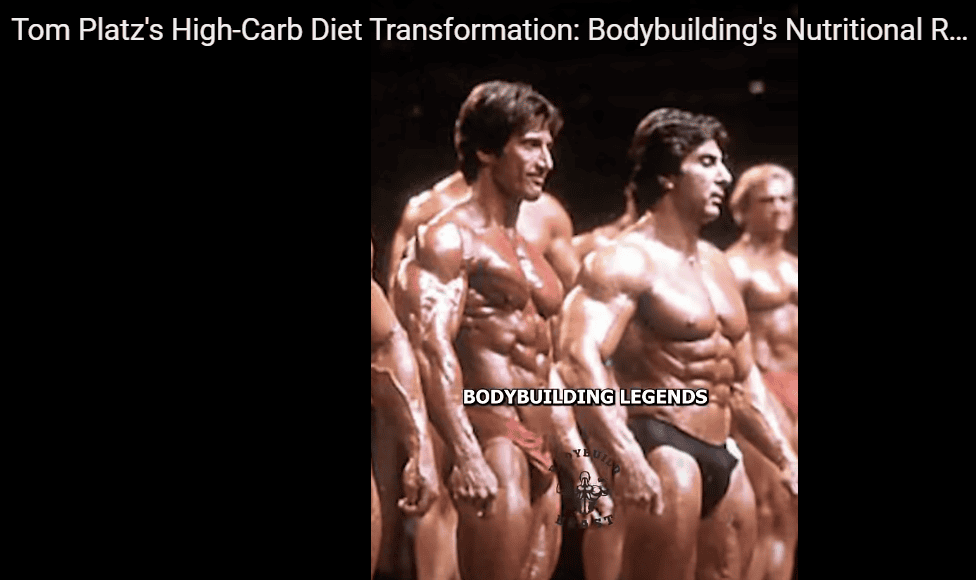You’ve heard it all before: “Sugar will make you weak!” “Vegans can’t build muscle!” “Eat a cookie and your biceps will disappear!” But before you banish bananas and fear fruit, let’s bust some myths about sugar and vegan muscle—because, spoiler alert, you can have your mango and flex it too.
1. Myth: Sugar Turns All Your Gains Into Flab
Let’s set the record straight: eating sugar (especially from fruit and juice) doesn’t automatically transform your hard-earned muscle into marshmallow fluff. Your body uses glucose for fuel, especially during intense workouts. In fact, a quick hit of sugar before or after training can help you power through those last reps and recover faster. Remember those shredded 80s bodybuilders? Many of them cut to single-digit body fat on high-carb, low-fat diets—often loading up on fruit, rice, and even sugar water in the weeks before competitions. They weren’t afraid of sugar; they embraced it as a secret weapon for peak performance and aesthetics (source). For a real-world look at how today’s bodybuilders use high-carb diets, check out this High Carb Muscle-Building Diet Grocery List.
2. Myth: Vegans Can’t Build Muscle Without Low-Carb Diets
Some folks act like carbs are the enemy of every vegan bodybuilder. The truth? Carbs—yes, even the sweet ones—are your muscle’s best friend. They refill glycogen stores, fuel your lifts, and help you train harder and recover faster. Recent studies show that high-carbohydrate, low-fat (HCLF) diets are generally more effective for muscle gain compared to low-carbohydrate, high-fat diets. For example, a 2024 study found that participants following a high-carb/low-fat diet achieved greater skeletal muscle hypertrophy and strength gains than those on a low-carb/high-fat diet (source).
And let’s not forget: many 1980s bodybuilders followed high-carbohydrate diets for a reason. High-carb diets provided the necessary energy for the intense, high-volume resistance training typical of the era, replenishing muscle glycogen and allowing athletes to train harder and recover faster. Carbs also help draw water into muscle cells, making muscles appear fuller and more vascular—a look highly prized on stage (source). Plus, carbs have a protein-sparing effect, meaning your body burns carbs for energy instead of breaking down muscle, preserving your hard-earned gains (source). Influential trainers like Vince Gironda and Tom Platz championed this approach, and the science backed them up. See Tom Platz’s own transformation and high-carb philosophy in Tom Platz’s High-Carb Diet Transformation.
3. Myth: Sugar Causes Instant Energy Crashes
You’ve probably heard that sugar gives you a quick high and then dumps you on the couch for a nap. But when paired with a balanced diet and regular meals, sugar (especially from whole fruits) provides steady, usable energy. That’s why endurance athletes—think marathoners and cyclists—often rely on sugar gels, sports drinks, and fruit to keep their energy up during grueling events. The dreaded “crash” is more likely from eating candy on an empty stomach—not from sipping on a smoothie after leg day. Use sugar strategically, and you’ll be powering through workouts, not snoozing through them.
4. Myth: Eating Sugar Means You’re Not Serious About Nutrition
There’s a difference between downing soda by the liter and fueling up with fruit. Many top vegan athletes (yep, even the ones with biceps bigger than your head) include fruit, juice, and even sugar water as part of their training. Sugar isn’t a moral failing—it’s a fuel source. The science is clear: muscle growth happens when you combine resistance training with sufficient protein and enough calories (including carbs) to support recovery and growth. In fact, research shows that consuming carbohydrates along with protein after resistance exercise can further increase muscle protein synthesis. Carbohydrates stimulate insulin release, which helps drive amino acids into muscle cells and suppresses muscle breakdown. As long as you’re getting enough protein, micronutrients, and healthy fats, the occasional sweet treat won’t undo your hard work—or your flex appeal.
For a science-backed breakdown, check out The Largest Study on Carbohydrates for Building Muscle.
5. Myth: All Sugars Are Created Equal
Not all sugars are out to sabotage your squat PR. Fruit and natural juices come with vitamins, minerals, and fiber—basically, everything your muscles love. That’s why athletes reach for bananas, dates, or even sugar gels during competition: quick, efficient energy with minimal digestive fuss. Plus, high-carb diets may help reduce cortisol (a catabolic hormone), which can otherwise hinder muscle growth if chronically elevated. This hormonal environment, combined with the energy provided by carbohydrates, creates optimal conditions for muscle hypertrophy. Processed sweets and sodas? Not so much. Focus on whole food sources of sugar, use them to fuel your workouts, and leave the powdered donuts for cheat day (or, you know, never).
Bottom Line:
Sugar isn’t the muscle-melting monster it’s made out to be—especially for vegan athletes. Used wisely, it can be a powerful tool for fueling workouts, building muscle, and keeping your vegan gains strong. 80s bodybuilders, marathon runners, and modern plant-based athletes have all tapped into the power of carbs and sugar for peak performance and physique. And the science is clear: high-carb diets, especially when paired with adequate protein and resistance training, are a recipe for maximizing muscle growth, strength, and recovery. So, go ahead: eat that banana, sip that smoothie, and flex with confidence.
Stay sweet (and strong),
Scott
VeganDadDaily.com

